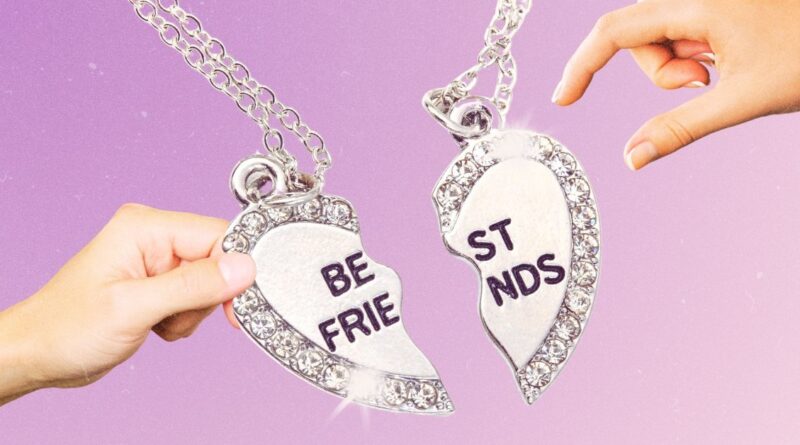Is Relationship Therapy the Next Big Thing in Mental Health?
YA few years ago, Aminatou Sow and Ann Friedman hit on their difficult friendship. For reasons they couldn’t fully explain, they weren’t talking or clicking like they used to. Things got worse.
Sow and Friedman are serious about their friendship—they wrote a book together Great Friendship: How We Keep Close—so they tried something a little more unusual: friendship therapy. Like traditional couples counseling, the therapist helps them understand their relationship status, where they went wrong, and how they can move forward together.
“Format was everything, because in a disorganized way, all you do is talk about high-level things. You don’t see patterns,” Sow said. it was nice that someone who didn’t know us asked us these questions.”
When Sow and Friedman were looking for friendship therapy in 2016, the idea was relatively weak. They struggled to find a doctor who would work with friends, not business or romantic partners, and had to fire one doctor who was disappointed that it was really them. they were romantic love. But now, the idea of friendship therapy is gaining more and more popularity, as people recognize the fact that friendship is closely related to well-being and happiness—and that, especially after the pandemic, people many do not have such strong relationships. as they like.
Miriam Kirmayer, a psychologist and friendship expert based in Canada, says: “The way we view friendship in society—it’s changing.
Read more: What to Do When Health Insurance Denies You the Care You Really Need
Barbie Atkinson, who provides relationship therapy at Catalyst Counseling in Houston, is seeing the effect of that change in her practice. He says that years ago, he received calls from people who wanted to go to therapy with their friend but were not sure if that was “allowed” or not. Today, about 25% of his clients are couples, or even groups, of friends in therapy together.
Friends come to Atkinson for all kinds of reasons, like reconciling political differences, dealing with shared grief, or dealing with tricky life transitions—like one friend having a baby or moving for work. you are new. He says: “It’s normal human things.
The process isn’t all that different from what romantic couples might do in therapy, except that friend times often don’t involve discussions of sex, love, or co-parenting, Atkinson says. As she would with partners, she helps her relationship therapy clients understand their attachment styles, define how they relate to each other and communicate with others (and where those strengths can be improved there), and setting goals for their relationship. Atkinson says: “You see two people who want to reconcile—who are saddened by the way their relationship turned out and are trying so hard to fix it.”
Unless the friendship has become dangerous or abusive, to the point where friends no longer feel physically or mentally safe together, most conflicts or conflicts can be resolved through collaboration, says Victoria Kress, a professor of psychology and counseling at the University of Youngstown State. Ohio. She used to work with friends all the time when she was a college counselor, discussing everything from her roommate’s problems to the afterlife. fights between close friends. He says there is no reason why fully grown adults should not seek treatment for their problems.
“I spend most of my career working with people who have been hurt in their relationships, trying to help them get better in their relationships,” says Kress. “Friendship counseling is a great way to encourage growth and healing that will extend to all relationships in a person’s life.”
Read more: How To Know If Your Friendship Is Toxic—And What To Do About Them
Developing friendships can change attitudes. Research continues to suggest that close friendships, perhaps even more than family ties, are important for well-being, and Americans seem to be getting the message. As of 2023, 61% of US adults said that having close friendships is important to a fulfilling life, while only a quarter said the same about getting married or having children. And while many people shy away from those traditional events, others rely heavily on platonic relationships for support, companionship, and care—which sometimes means strengthening those relationships with professional help.
There is little official data on the popularity of relationship therapy, perhaps because it is not a specialized technique; no separate certification process or degree is required to provide it. At its core, relationship therapy is “systemic therapy”—which examines how a person’s relationships affect their well-being, and is often the backbone of couples therapy—applied to platonic couples, says Paul Hokemeyer, marriage based in Colorado. and family doctor.
Hokemeyer said he doesn’t know many therapists focusing on friendship therapy, but he has noticed a growing demand from patients for the service. He even works with friends himself, including two who are struggling to navigate college and adulthood while keeping their relationships intact.
Hokemeyer says relationship therapy seems to be more popular among millennials, who tend to be more comfortable turning to therapy and value friendship more. He says: “There is a real hunger for human connection and human relationships. “Millennials, in particular, value relationships, value experiences, and value their mental health.”
Kirmayer said he’s noticed clear interest as well. In fact, in recent years, he began to receive many requests for friendship therapy from all over—which, due to licensing requirements, he could not offer to people outside the province. his – so much so that he decided to form a friendship. -focused training for people living anywhere. He says: “This is something that many of us are facing.
#Relationship #Therapy #Big #Mental #Health
